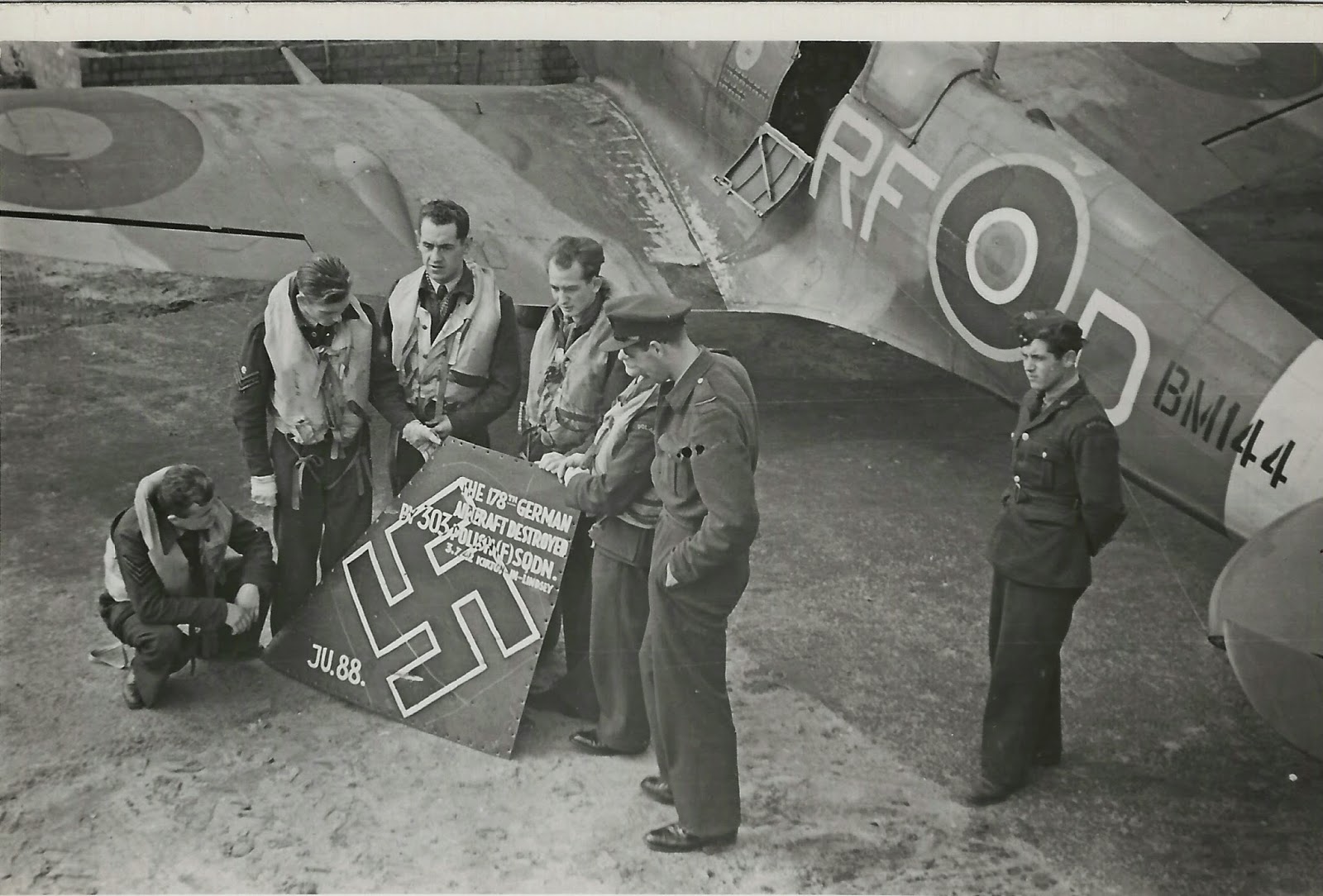No 303 Polish Squadron RAF
No. 303 ("Kościuszko") Polish Fighter Squadron (Polish: 303 Dywizjon Myśliwski "Warszawski im. Tadeusza Kościuszki") was one of 16 Polish squadrons in the Royal Air Force (RAF) during the Second World War. It was the highest scoring RAF squadron of the Battle of Britain.[1][2][3]
The squadron was named after the Polish and United States hero General Tadeusz Kościuszko, and the eponymous Polish 7th Air Escadrille founded by Merian C. Cooper, that served Poland in the 1919–1921Polish-Soviet War. No. 303 was formed in July 1940 in Blackpool, Britain [4] before deployment to RAF Northolt on the 2nd of August as part of an agreement between the Polish Government in Exile and the United Kingdom. It had a distinguished combat record and was disbanded in December 1946.
My wife's late grandfather Wg Cdr B R Grant was an RAF Engineering Officer during the war and had some association with no 303 Squadron during the war. I discovered a treasure trove of 303 Sqn photographs when Władysław Raczkiewicz the President of the Polish Government in Exile visited the Squadron and was introduced to my wife's grandfather. I would like to know what my wife's grandfather's association was with this famous squadron.
here are some of the pictures:








